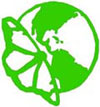|
Pesticide
use and Asia's collapsing agricultural sector
The Pesticide
Action Network Asia and the Pacific (PAN AP) reports:
According to the World Health Statistic Quarterly, a World Health
Organisation (WHO) publication, about 25 million workers in developing
countries are poisoned every year by pesticides. Of particular
concern from pesticide exposure is the potential for long-term
disruption to the human endocrine (hormone) system causing development
and reproductive abnormalities and diseases. The November 2000
People's Caravan in Asia found many examples of unnecessary and
dangerous use of pesticides.
|
|
Pesticides are
Poisons
Asian countries are gripped by the tragedy of a collapsing agricultural
sector. Under the guise of feeding the world during the Green Revolution-led
by the International Rice Research Institute's (IRRI) promotion of high-yielding
varieties (HYVs) in Asia-much of the seed diversity, once prominent
in Asia, has been lost.
From an environmental and human health perspective, monoculture cropping
encourages increasing pesticide use. Pests quickly develop resistance
while their predators are killed off and farmers turn to increasingly
higher doses and/ or stronger, more toxic pesticides, as pest resurgence
occurs.
Farmers are also often forced to increase the use of fertilisers to
counter the loss of soil fertility resulting from a limited source of
nutrients provided by one type of crop. HYVs also demand far more water
and nutrients adding to the depletion of soil fertility and water resources.
In addition pesticides and fertilisers build up as toxic residues in
food and contaminate our soil, water and air, not to mention the health
and living environment of farmers, agricultural workers and farming
communities.
Farmer Jahanara Begum, speaking at a public meeting in a rice field
in Chakaria, Bangladesh, said, "We have so many varieties of rice
seeds, but instead we are going for the varieties from IRRI and the
seed companies. These seeds need a chemical package. So we are doing
deals with scientists and transnational companies. When we use local
varieties we get a yield of 40 kg of rice. When we use pesticides and
the companies seeds we get 20 kg more but we also destroy our soil,
water and biodiversity."
She added, "How
many poisons are you using? We have lost our birds, our fish, the wildlife.
We have lost all this for 20 kg more and we spend more money on our
family's health. Bangladesh has such fertile land. We can grow so much.
Still we have so much biodiversity."
Furthermore, "For
the last eight years I have used no pesticides. My costs have gone down
and my yields have gone up. In nature there is a balance between predators
and prey. Pesticides destroy this natural balance."
|
The
People's Caravan 2000 -
"Citizen's on the Move for Land and Food Without Poisons"
in India, Bangladesh, the Philippines
One year after
massive protests in Seattle against the World Trade Organisation
(WTO) and its brand of globalisation-the People's Caravan 2000
ended three weeks of activities in India, Bangladesh and the Philippines,
with simultaneous events in Japan, Korea and Indonesia.
With speakers,
information and personal testimony on the theme, "Citizen's
on the Move for Land and Food Without Poisons!", the People's
Caravan traveled over 2 500 kilometers through Tamil Nadu, India
(November 13-18), Bangladesh (November 18-24) and within
Manila, the Philippines (November 25-30). The caravan called
for an end to the devastating effects from the globalisation of
agriculture and instead advocated genuine agrarian reform, food
sovereignty, social justice and land and food without poisons.
|

The People's Caravan rallies in front of the U.S. Embassy to commemorate
"One Year Since Seattle".
Photo by S. Hindmarsh, PAN AP. |
The People's Caravan,
while highlighting these issues, was also about hope. It was about celebrating
local initiatives towards more sustainable healthy agriculture that
is in the hands of the people, that is for the people, that can really
feed our people and free them from dependence on hazardous pesticides
and other dangerous agricultural inputs and technologies.
Over 10 000 people-local
farmers, agricultural workers, fisherfolk, students, scientists, environmentalists,
teachers, the media, government officials, policy makers, and anti-pesticide
and anti-genetic engineering advocates-participated in lively discussion
at public meetings, press conferences and educational 'teach-in's at
bus stops, in rice fields, in villages and towns. Food festivals, seed
exchanges, songs and street theatre celebrated our local initiatives
towards more sustainable, healthy agriculture.
(source: Summary
of Events, Pesticide Action Network Asia and the Pacific (PAN AP), January
2001)
For more information and the full reports of the Caravan:
www.poptel.org.uk/panap/caravan.htm
back
to health men
|


